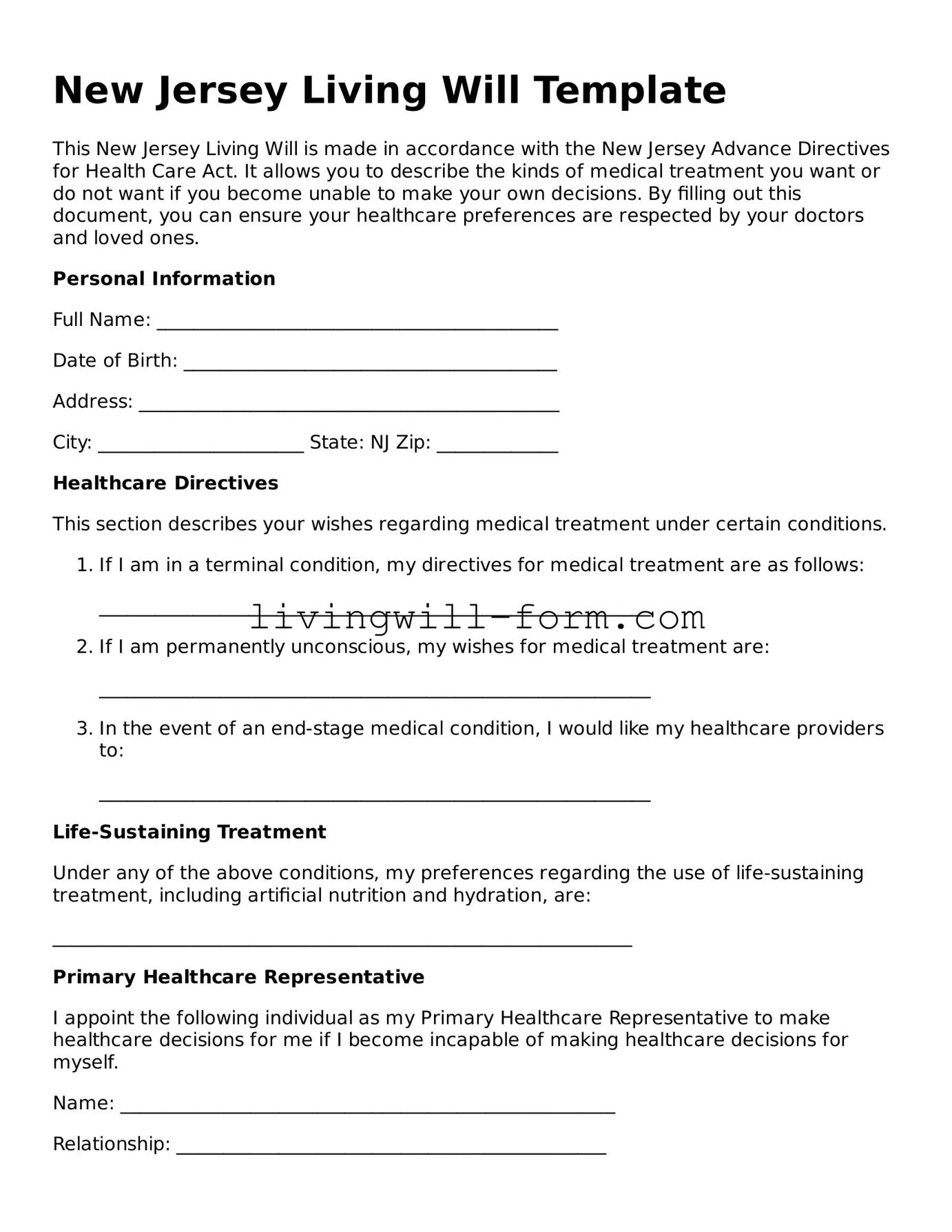New Jersey Living Will Template
This New Jersey Living Will is made in accordance with the New Jersey Advance Directives for Health Care Act. It allows you to describe the kinds of medical treatment you want or do not want if you become unable to make your own decisions. By filling out this document, you can ensure your healthcare preferences are respected by your doctors and loved ones.
Personal Information
Full Name: ___________________________________________
Date of Birth: ________________________________________
Address: _____________________________________________
City: ______________________ State: NJ Zip: _____________
Healthcare Directives
This section describes your wishes regarding medical treatment under certain conditions.
If I am in a terminal condition, my directives for medical treatment are as follows:
___________________________________________________________If I am permanently unconscious, my wishes for medical treatment are:
___________________________________________________________In the event of an end-stage medical condition, I would like my healthcare providers to:
___________________________________________________________
Life-Sustaining Treatment
Under any of the above conditions, my preferences regarding the use of life-sustaining treatment, including artificial nutrition and hydration, are:
______________________________________________________________
Primary Healthcare Representative
I appoint the following individual as my Primary Healthcare Representative to make healthcare decisions for me if I become incapable of making healthcare decisions for myself.
Name: _____________________________________________________
Relationship: ______________________________________________
Phone Number: _____________________________________________
Address: __________________________________________________
Alternative Healthcare Representative
If my primary representative is unable, unwilling, or unavailable to act on my behalf, I appoint the following individual as an alternative:
Name: _____________________________________________________
Relationship: ______________________________________________
Phone Number: _____________________________________________
Address: __________________________________________________
Signatures
This document represents my healthcare preferences. I affirm that I am of sound mind and I understand the consequences of this document. I execute this Living Will voluntarily and without any undue influence.
Signature: ______________________________ Date: ____________
Witness (1) Signature: ____________________ Date: ____________
Printed Name: _____________________________
Witness (2) Signature: ____________________ Date: ____________
Printed Name: _____________________________
Affirmation by Healthcare Representative:
I, __________________________, affirm that the declarant has personally requested that I serve as their healthcare representative. I accept this responsibility and agree to act in accordance with the wishes of the declarant to the best of my knowledge and belief.
Signature: ______________________________ Date: ____________

